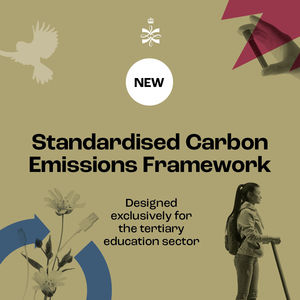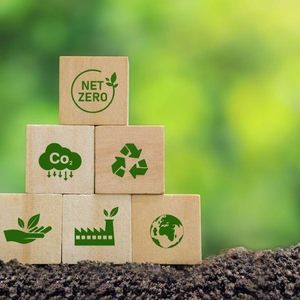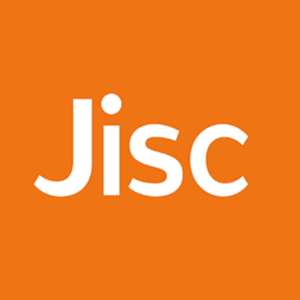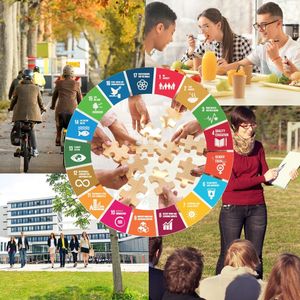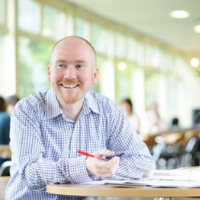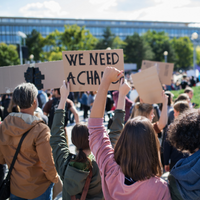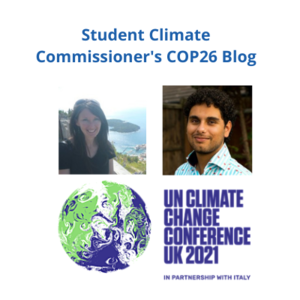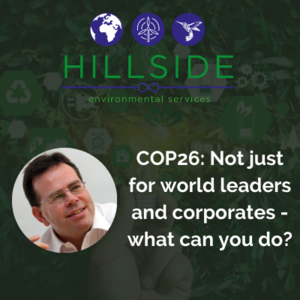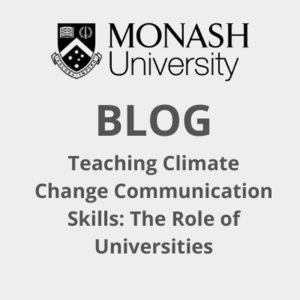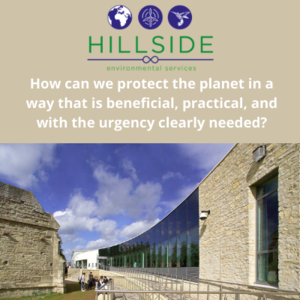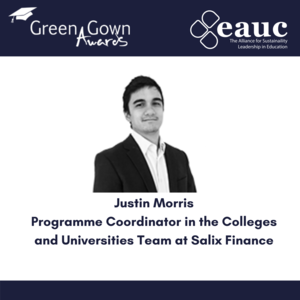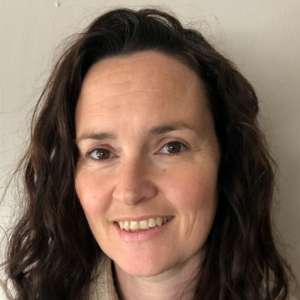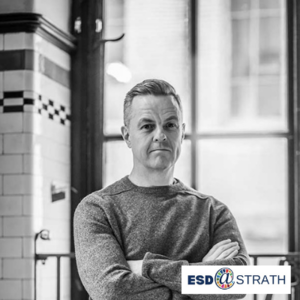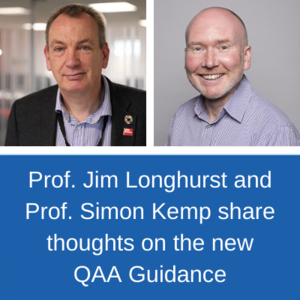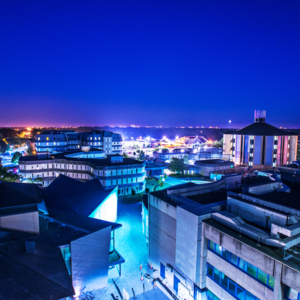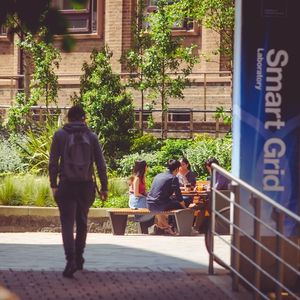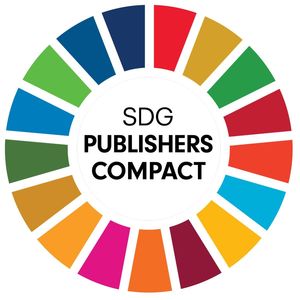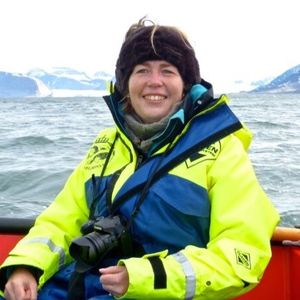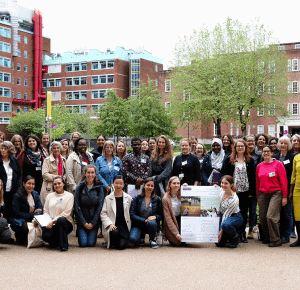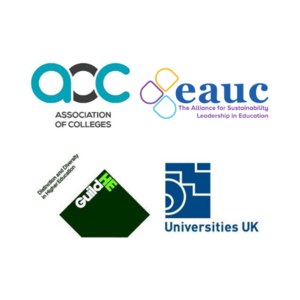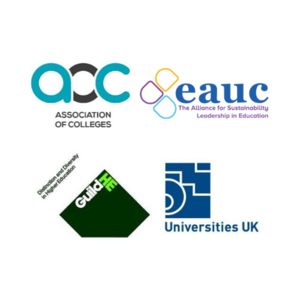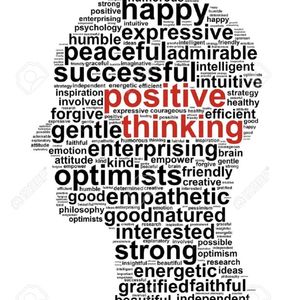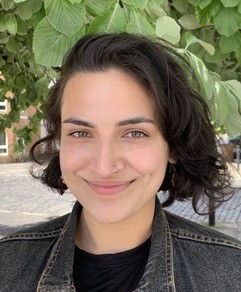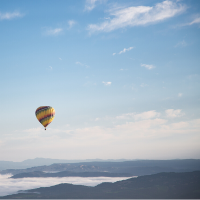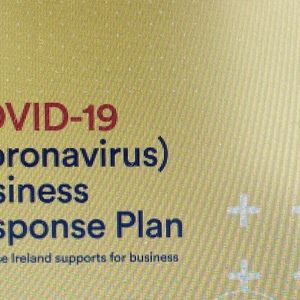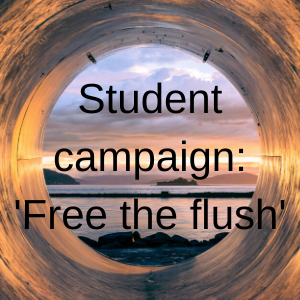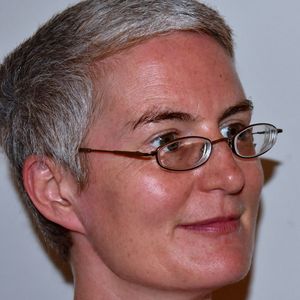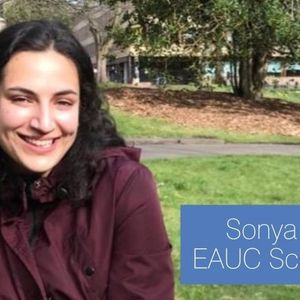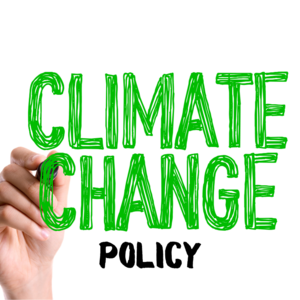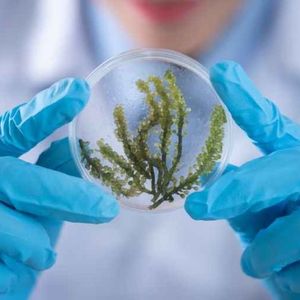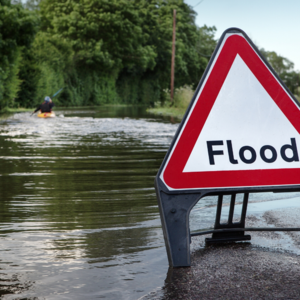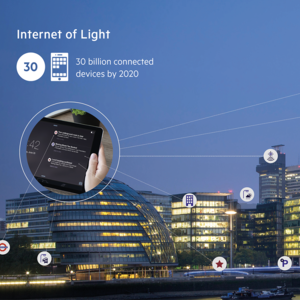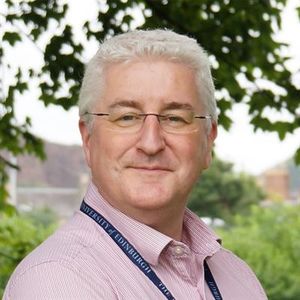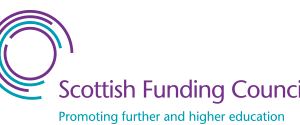Blogs OLD
Welcome to the EAUC blogs section! You will find a mixture of articles by our educational members, strategic partners, company members, and of course, ourselves.
These aim to be interesting, informative and inspirational reading material! Together, we believe we can lead and empower the post-16 education sector to make sustainability 'just good business'. These blogs will help show what is happening across the sector from different perspectives and how we can work together to make a better tomorrow.
It should be noted that views and opinions expressed in blogs are personal and belong to the blog author. They are not necessarily reflective of the views and opinions of EAUC.
If you have a blog post you would like to submit - just email us
A timely article released on holocaust Memorial Day 2023, Paul Vare ponders how we are all in danger of perpetrating outrageous acts simply by going with the flow. if we are not directing our energies towards stimulating a regenerative way of life and using our positions to work proactively against potential global calamity, are we any better than Eichmann?
Higher and further education providers urgently need to get better at measuring and reporting their carbon footprint. EAUC interim chief executive Fiona Goodwin introduces a new standardised carbon emissions framework.
Many universities and colleges may have experienced limited student travel over the past few years but with international experiences an important component of any education, we must consider how these experiences play a part in sustainability education for both staff and students. Gemma Hall, Brand Manager at StudyLink Tours, shares insights into how group travel can be both greener and slower.
Shakespeare Martineau wished to understand what challenges and barriers stop or stall institutions from becoming a green campus and what, if any, influence campus sustainability has on the prospective students. In their recent Building a Green Campus – what’s stopping institutions report, those very barriers which inhibit institutional progress towards more environmentally-sound spaces are discussed. Smita Jamdar, Head of Education at Shakespeare Martineau, tells us more.
In this case study from the University of Dundee, we hear from Institutional Lead for Period Power Sharon Sweeny and Environment, Sustainability and Waste Manager Trudy Cunningham about the work they have done to ensure provision of recycled and reusable sanitary products on campus.
Niamh Guiry, PhD Researcher at University College Cork, delves into the importance of ESD, embedding the UN SDGs, and bridging staff and student perspectives to decrease demoralisation in the face to climate change. Despite the struggles, Niamh believes that there is cause for hope.
David Duncan, of the University of Glasgow, describes the major challenge for universities when embarking on off-setting reliably, and why Joining the Carbon Coalition gives universities a route to achieving net zero carbon by 2030.
By Fiona Goodwin, EAUC CEO (Interim). Sustainability and caring for the environment are becoming top agenda items for universities and colleges alike, although the approach to tackling these challenges varies across the sector.
By Hayley Bristow, Programme Manager at Salix Finance. Universities and colleges across England are working with Salix Finance to decarbonise their estates and meet Net Zero targets. Read the progress update on their schemes.
Betsy King, LFS Scotland, and Lucy Patterson, EAUC Scotland, discuss the importance of the newly developed 'Introducing Action for Sustainability' course for all college staff.
Professor Simon Kemp reflects on the inclusion of Education for Sustainable Development in QAA Subject Benchmark Statements.
Iain Patton, CEO EAUC, discusses the need for all institutions' to set science-based emissions goals, under an agreed methodology.
Student Climate Commissioners, Manveer and Katie, reflect on their experiences of attending COP26 as part of the EAUC Delegation.
The EAUC-Scotland Team are delighted to share with you a few of our favourite ways of getting into the Christmas sprit while reducing our impact. Which will you choose? Slàinte!
A blog by Russell Burton, CEO at Hillside Environmental Services that looks at what SMEs and the further education sector can learn from COP26. Two sectors that are often overlooked when it comes to climate change, but have a considerable impact.
Climate Fresk is a group activity that aims to increase awareness of how our actions have led to a climate emergency. Lucy Patterson, our Scotland Sustainability in the Curriculum Project Officer, attended one their workshops and shares her experience.
Do students know how to communicate about climate change? Public concern about climate change is at an all-time high, particularly among young people and students – but many concerned individuals are either unwilling or unaware of how to communicate their attitudes and knowledge of climate change to have a positive effect. Read thoughts from Matt Carew, Susie Ho, and Lucy Richardson at Monash University.
With the absence of concerted and effective leadership at an intergovernmental level, we need more community leaders from all parts of society to step up and fill the void of effective action – and our universities and colleges are ideally placed for this. A blog by Professor Joy Carter CBE, GuildHE Climate Commissioner for the Climate Commission for UK Higher and Further Education.
Learn how the Hillside team has supported Gloucestershire College with an environmental audit and report, business case and economic model, a successful application to finance the project, plus procurement of trusted suppliers.
Our new Sustainability in the Curriculum Project Officer in the Scotland Team, Lucy Patterson, explains why education for sustainable development matters to her, and why it must be a priority in colleges and universities.
Justin Morris - Programme Coordinator in the Colleges and Universities Team at Salix Finance talks about how decarbonisation sits at the heart of the Government’s green agenda.
Read Richard's thoughts on the future delivery of education, not just in the United Kingdom, but all around the world. Richard comes from a background where he twice had the ‘God’s Eye View’ of the very broad requirements and was in position to change things and to improve the eventual outcomes at a national or global level.
This is a reproduction of an article by Christine Calder, Academic Development Lead at Dundee and Angus College and one of the EAUC-Scotland Education for Sustainable Development Topic Support Network Convenors, and Betsy King, Development Manager at Learning for Sustainability Scotland, for Inspiring Lecturers, a publication by the General Teaching Council for Scotland (GTCS), Colleges Scotland, and The Educational Institute of Scotland (EIS). It outlines the general context for Education for Sustainable Development.
Dr Rehema White, an academic from the University of St Andrews, Chair of the Learning for Sustainability Scotland Steering Group, and one of our Education for Sustainable Development Topic Support Network Convenors, was a member of the QAA expert group tasked with revising and updating the ESD Guidance. Here she reflects on being part of that process and her hopes for the future of education.
Scott Strachan, one of our Education for Sustainable Development (ESD) Topic Support Network Convenors and a Senior Teaching Fellow at the University of Strathclyde, was asked about how the new QAA / Advance HE Guidance for the Higher Education Sector on ESD and will influence their work at the University.
EAUC Trustees Simon Kemp and Jim Longhurst were centrally involved in developing the new QAA Guidance for the Higher Education Sector on Education for Sustainable Development. They share an outline of the guidance.
This collection of blogs from Advance HE provides diverse perspectives and ideas of sustainability in higher education, including contributions from Fiona Goodwin - Director of Operations and Planning at EAUC, Manveer Gill - Student Climate Commissioner and Professor Joy Carter - VC at University of Winchester and Climate Commissioner
Salix Finance's Natasha Mylett looks at how universities across the UK are continuing to develop and deliver their estate-wide carbon management plans in spite of the pandemic and a number of challenges facing Higher Education institutions.
The Heat Networks Investment Project (HNIP) team has written an article which focuses on how universities can benefit from HNIP funding and why heat networks are suited to campuses.
Sarah Clayton, Head of Citizen Behaviour Change at WRAP gives us the lowdown on the brand new WRAP campaign 'Food Waste Action Week' which runs 1st - 7th March 2021.
Student Magda Núñez talks about about how to better engage with your community on sustainability.
Sharon Parkinson, Senior Journals Publisher at Emerald Publishing, explores how the United Nations Sustainable Development Goals Publishers Compact is designed to inspire action among publishers and accelerate progress to achieve the Sustainable Development Goals (SDGs) by 2030.
Alison Robinson, Deputy Executive Chair at NERC, talks about the need to embed sustainability at the heart of higher education research and innovation to tackle the huge challenges posed by climate change.
Ecologist Dr Cecilia Medupin explains how engaging women from diverse backgrounds is a catalyst to environmental change.
Richard Murphy, Managing Director at The Energy Consortium, looks at what we can do to start to decarbonise our lives and institutions as we work towards achieving Net Zero.
Sonya Peres, Climate Commission Officer for the Climate Commission for UK Higher and Further Education discusses the Commission's findings on the need for comprehensive GHG emissions reporting, with insight from Commissioners Jim Longhurst and Manveer Gill.
Matthew Green, Head of Commercial Services at South Devon College explains how the mandatory reporting requirement of the SDG Accord has really helped them improve their sustainability as a college.
Sonya Peres, Climate Commission Officer for the Climate Commission for UK Higher and Further Education, discusses how UK research can be harnessed to drive impactful climate action.
Pitch In is a project developed and delivered by Fidra in collaboration with KIMO International. The project aims to end microplastic pollution from 3G artificial turf. Fidra's work uses information collated from researchers, industry, government and other NGOs along with best available science, to establish and inform a wider dialogue with the 3G artificial turf industry, and the communities who use and benefit from them, on how to end microplastic pollution from 3G turf.
Hey Girls is a social enterprise based in Scotland, on a mission to end period poverty in the UK. We launched in 2018, by founder and CEO Celia Hodson and her two daughters Kate and Becky. It all started with a heated discussion that resulted in a simple goal – how to tackle ‘period poverty’ in a sustainable way.
Sonya Peres, Climate Commission Officer for the Climate Commission for UK Higher and Further Education Students and Leaders talks about how institutions can and should respond to the Climate Crisis.
A disorder in reality might lead to an enduring desire for order in thoughts (Held, 2013:220). Since this pandemic is changing our reality as we have discussed in our first blog. We must seek a positive order in thoughts. The uncertainty in this disorder carries fear and unpredictability. While, it is evident that there is a diversity and heterogeneity in individual responses to uncertainty (Honkasalo, 2008:492) we shall try to conquer our fear and channel our motivation to positive thinking.
The proportion of disabled[1] people is rising, and it is estimated that ONE billion people (15% of the population) is disabled according to the World report on disability (World Report on Disability, 2011). Disability is much more common in low and middle-income countries. There are many definitions of disability.
Earlier this year, I wrote about my journey in confronting the environmental and social impacts of air travel. I had been working on the Travel Better Package to support a reduction in flying in universities and colleges and had just returned from a two-week long Christmas holiday to Canada. I grappled with the shame I felt, mixed with the longing to see my family. I thought it could be useful to share the difficulties of an international life to support others in similar situations.
Starting a business can offer a lifeline for people living below the poverty line as they try to recover financially and mentally. However, the Covid-19 crisis is going to have a devastating impact on economies. The outbreak has brought countries’ economies to a halt and driven many victims to shut their business and seek loans to survive. If starting a business in the informal sector[1] was difficult before the coronavirus crisis, it will be far more difficult after the crisis. This is because many employees will be made redundant (if they are not already redundant) and some people (especially women) will look to start a new business to be able to survive.
Evidence shows that long-term exposure to air pollution is linked to the development of various diseases, including respiratory conditions such as lung cancer and asthma, and to an estimated 36,000 early deaths in the UK every year . Evidence based research also indicates a link between high levels of air pollutants and Covid-19 cases and deaths
Everyone has heard of recycling, but what about upcycling? Recycling is the process of turning waste into a reusable material or product. It involves taking common household items, such as paper, glass, and plastic, breaking down the materials, and using them to form another product that is often of lesser quality. Upcycling, on the other hand, is a very specific form of recycling that turns waste into a material or product that is of a higher quality.
It is well established now that Covid-19 is very strongly linked to the loss of biodiversity that is caused by both businesses and individual human activity. In this short article, we introduce Energy from Waste (EfW) as a process of generating energy in the form of electricity and/or heat from the incineration of waste (Stringfellow, 2014). It could be termed ‘Renewable’ in the sense that waste is always in a constant process of replenishment from human activity.
During the lockdown period of the coronavirus pandemic we are all adapting to spending more time at home. I have at times felt anxious about my health, financial implications, and future stability of work. I am grateful that I am still able to leave home for essential purchases and participating in daily exercise, and when I do the nature that greets me outside becomes my sanctuary.
How do we maintain our work/life balance during this time while continuing to ensure our own and our families well-being? We are delving into the lives of colleagues to find out how they manage just this!
Around the globe, the current pandemic has imposed a new reality that revolves around phrases like: self-isolating, social distancing measures, Personal Protective Equipment (PPE), flattening the curve and underlying conditions. An overwhelming new reality has emerged with people asking questions such as: Was I wearing gloves in the supermarket that day? Is this a normal sore throat? Did he/she cough next to me? Have we reached the peak? Is my child coping? Will I lose my job?
EAUC writes about Earth Day, the roles of universities and colleges in coming to the aid of our ailing planet, and how Covid-19 will impact our Earth moving forwards.
As a result of Covid-19 pandemic, world leaders have followed World Health Organization (WHO) advice that social distancing is the solution to prevent the virus from spreading and to our allow National Health Services to save lives. To allow this to happen, businesses have been told to close their doors during the coronavirus outbreak. The question is: have businesses fulfilled their CSR duties?
Life has as we know it entered unprecedented times with the emergence of the Covid-19 virus. Worldwide, organisational operations and individual movements have been restricted, and in some countries these rules are enforced by the police. Governments have taken unprecedented measures to confine movement. The previous unthinkable measures have changed lives drastically but most are complying with the new rules, acknowledging the greater good is to minimise impact and retain health.
Biodiversity is the infrastructure that supports all life. The immense pressure plastics are having on the oceans, along with the disappearance of rainforests, and land clearing for agricultural purposes, have all contributed to biodiversity loss and species extinction. All these issues have resulted in many years of human overexploitation of our planet and are recognised to be causing the sixth extinction period the planet is currently experiencing.
LSE student Harriet Freeman talks about the struggle and surrender involved in running a successful sustainability campaign.
Academia is closely linked to extensive mobility, meaning attending non-local conferences and meetings and engaging in globalised research amongst other international engagements.
Anika Kovalická, a Nottingham Trent University (NTU) student studying Global Studies and International Relations talks climate change and education.
Sonya Peres is the Responsible Institutes Research Intern for EAUC Scotland who has been focusing on their Travel Better package to support universities and colleges to reduce the amount of air travel. During this time, Sonya was prompted to reconsider her own flying habits and has set herself some goals for 2020.
Jon Khoo from Interface, proud supporters of the Green Gown Awards Outstanding Leadership Team of the Year, talks about leadership and facing the Climate Emergency Challenge.
Leading academics from University of Lincoln, LSE, University of Hull and University of Manchester have collaborated on this blog about climate policy change and the role of universities and colleges.
Kerry Cheek, SRS Projects Coordinator reflects on a recent project in which she researched laboratory plastic waste at the University of Edinburgh.
Paul Cusition, Chief Executive and Director at FHE specialist insurance provider UMAL talks about why universities and colleges cannot afford to delay climate change risk assessment and adaptation plans.
Alison Johns, Advance HE CEO, highlights some of the stark statistics about women’s representation in higher education ahead of our Women in HE Conference: Conditions for Change - how can we accelerate change that tackles the treatment and inclusion of women?
EAUC CEO Iain Patton discusses the growing climate emergency movement, and the role of Higher and Further Education within it.
Zenith UK talks about the sustainability findings in the latest Natwest Student Living Index.
EAUC talks everything Global Climate Strike - who, what, when, where, and most importantly - why!
Robert McIntyre, Solutions Architect at Tridonic UK Ltd talks about that lightbulb moment with lighting on campuses.
Zoe Williams, Head of Marketing at Selectaglaze tells us about improving the sustainability of a Grade 2 listed building at Birmingham University.
The concept of sustainability may not be on the minds of every university staff member or student, but in light of significant global challenges, universities must do all they can to help protect our planet and those that depend on it for survival. Dave Gorman, Director of Social Responsibility and Sustainability University of Edinburgh, writes for UUK.
Jenny Jamieson, Policy Officer at the Scottish Funding Council outlines the role EAUC is playing to ensure sustainable development in the education sector.


